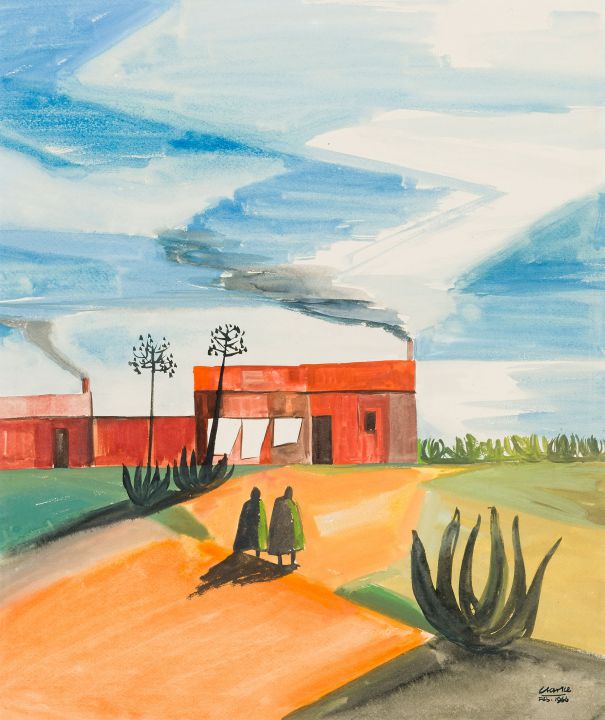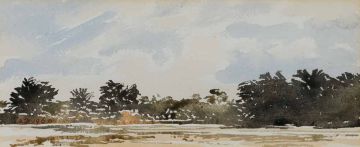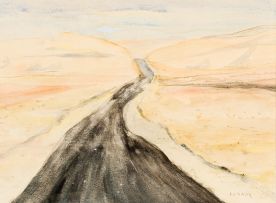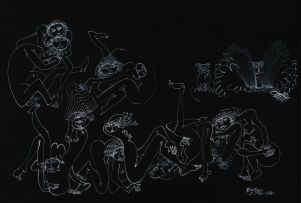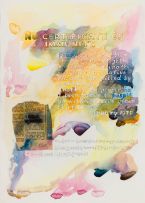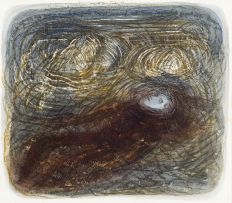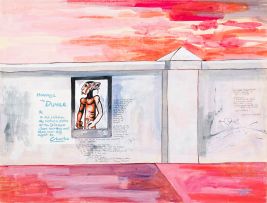Important South African and International Art
Live Auction, 13 November 2017
Session Three
Incl. Buyer's Premium & VAT
About this Item
signed and dated Feb 1966
Literature
During the 1960s Peter Clarke visited Tesselaarsdal which he described as 'very quiet, peacefully, soothingly quiet after the racket left behind at the Peninsula'.1 Describing his rural scenes Philippa Hobbs and Elizabeth Rankin suggest that Clarke was 'revisiting this pleasurable subject matter at a time when his own urban world was filled with unease'.2 Noting the characters that people his landscape from this period, Hobbs and Rankin suggest that 'most of the figures in his rural scenes lack a strong sense of individuality, as though they are willingly part of a life of agrarian labour. This is not out of tune with other subjects in his work: while Clarke rarely creates individualised portraits, his figures are not devoid of the dignity of self-will, whatever their setting'.3
Commenting on his formal compositions of clouds Clarke noted that he was 'exploring patterns as if they were woven in a tapestry. I have spent a long time looking at clouds. You can find one type of cloud here that is unique simply because of the topography. This was a formal gesture of shaping the clouds. The sky is never really cloudless here...'4
1 Clarke, Peter. 1964. "Winter Shepherding. Contrast X: South African Quarterly 3(2). October, p 40 .
2 Hobbes, Philipa & Rankin, Elizabeth. (2011) Listening to Distant Thunder: the Art of Peter Clarke, Johannesburg: The Standard Bank of South Africa. Page 108.
3 Ibid.
4 Ibid.
